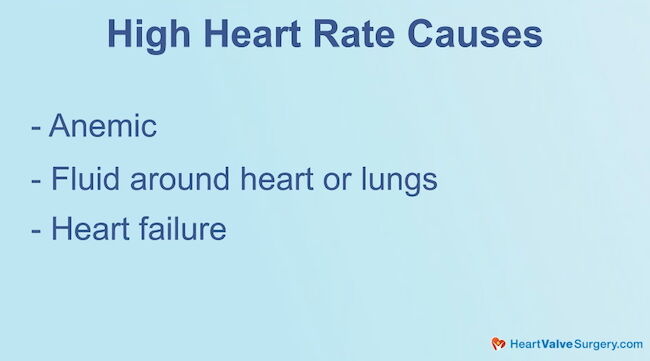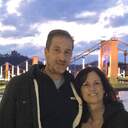Surgeon Q&A: High Heart Rates After Heart Valve Surgery
Written By: Allison DeMajistre, BSN, RN, CCRN
Medical Expert: Ibrahim Sultan, MD, Chief of Cardiac Surgery, UPMC, Pittsburgh, Pennsylvania
Reviewed By: Adam Pick, Patient Advocate, Author & Website Founder
Published: January 5, 2026
Experiencing unexpected complications after heart valve surgery can be stressful and confusing. It’s challenging once patients leave the hospital and don’t have the support and the reassurance of their care medical team close at hand as they recover at home. While some complications may be temporary (e.g. atrial fibrillation) and part of the normal course of a healing heart, the more information patients have about what’s normal and what’s not, the better.
We received a patient question from Lena, who was wondering if she should worry about her heart rate and blood pressure. Lena asked, “I had mitral valve repair two weeks ago. Since then, I have had too high heart rate and too low blood pressure. My friend told me his father had mitral valve repair and had the same issues. Is this common?
To answer Lena’s question, we met with Dr. Ibrahim Sultan who is the Chief of Cardiac Surgery at UPMC in Pittsburgh, Pennsylvania. Dr. Sultan specializes in both aortic and mitral valve operations.
Facts About Heart Valve Surgery and High Heart Rates
Here are the key insights shared by Dr. Sultan:
- Finding the reason for a high heart rate is the first step. “Heart rates fluctuate after heart surgery,” said Dr. Sultan. “It can be high or low. The first thing to look at is if there is a problem going on. For example, is the heart in normal rhythm, or is it an abnormal rhythm? Second, why does somebody have a high heart rate? Is it that they are anemic? Do they have a little fluid around their heart or lungs, or could they be in a small degree of heart failure after surgery? All these things are relatively common. Once you rule out those common issues, then you can treat that heart rate by slowing it down. But it’s not abnormal for the heart to respond this way after heart surgery.”

- How would you and your team at UPMC treat the heart rate? “The goal is to get the heart rate comfortable and level,” said Dr. Sultan. “So, we typically don’t like it over 100, but we don’t want to drop it below 60. We want it somewhere in the middle, and a lot of that depends on what kind of symptoms that elicit.” Dr. Sultan explained that some people have a heart rate of 60 or 70 and are extremely active, while others are used to a heart rate of 80 or 90. He and his team try to go with what their body and heart are comfortable with and typically use medications to keep the heart rate within the normal rate of 60 to 100.
Thanks Dr. Sultan and UPMC!
On behalf of all the patients in our community, thank you, Dr. Ibrahim Sultan, for everything you and your team are doing at UPMC in Pittsburgh, Pennsylvania
Related links:
- See Dr. Ibrahim’s Interactive Surgeon Profile
- Ask Dr. Sultan: Timing Bicuspid Aortic Valve & Aortic Aneurysm Surgery
- Check Out UPMC’s Microsite on Our Website
Keep on tickin,
Adam
P.S. For the deaf and hard-of-hearing members of our patient community, we have provided a written transcript of our interview with Dr. Sultan below.
Video Transcript:
Adam Pick: Hi everybody. It’s Adam with heart valve surgery. com and we are in Los Angeles, California at the Society of Thoracic Surgeons Conference. I am thrilled to be joined by Dr. Ibrahim Sultan, who is the Chief of Cardiac Surgery at UPMC in Pittsburgh, Pennsylvania.
Dr. Sultan, it is great to see you again, and thanks so much for being with me at STS.
Dr. Ibrahim Sultan: Thank you, Adam.
Adam Pick: We’re here, and we’re getting lots of good information about new advances in research in valvular therapy. Patient questions are also coming in, and for you, we have a great one from Lena. She asks, “Hi Adam, I had mitral valve repair two weeks ago. Since then, I have had too high heart rate. And too low blood pressure. My friend told me that his father had mitral valve repair and had the same issues. Is this common?”
Dr. Ibrahim Sultan: You know, heart rates fluctuates after a heart surgery. It can be high or low. The first thing to look at is, is there a problem going on?
For example, is the heart in normal rhythm or is it an abnormal rhythm? Second, why is somebody having a high heart rate? Is it that they’re anemic? Is it that they have a little bit of fluid around their heart or lungs? Could they be in a small degree of heart failure after heart surgery?
All these things are relatively common. Once you rule out those common issues, then you can treat that heart rate by slowing it down. But it’s not abnormal for the heart to respond this way after heart surgery.
Adam Pick: Great. And a quick follow up, you mentioned treat that heart rate. How might you and your team at UPMC do that?
Dr. Ibrahim Sultan: The goal is to get the heart rate comfortable enough level, right? So we typically don’t like to drop it over 100. Uh, we don’t want to drop it below 60. So we want it somewhere in the middle. And a lot of that depends on what kind of symptoms that elicit. Some people like being at a heart rate of 60 or 70.
They’re extremely active. Some people are used to a heart rate of 80 or 90. And so what they’re comfortable with and what their body and heart is comfortable with is what we go at.
Adam Pick: Do you use it through medication or other techniques?
Dr. Ibrahim Sultan: Typically medications. That’s the most common way we do that.
Adam Pick: Great. Well, Len, I hope that helped you. I know it helped me and Dr. Sultan on behalf of Len and all the patients around the world watching this. Thanks for everything you and your team are doing at UPMC in Pittsburgh, Pennsylvania. Thanks for being with me today.
Dr. Ibrahim Sultan: Great. Thank you, Adam.





